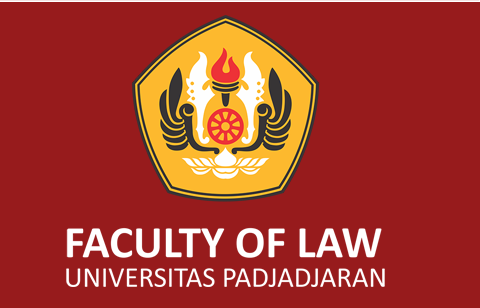Abstract
This study discusses the constitutionality of presidential candidacy threshold, particularly related to the principle of presidentialism. This study argues that the threshold is unconstitutional because it does not reflect the principle of presidentialism. The principle emphasizes executive and legislative prescriptions that should be independent of each other. Supporting the current threshold, the Constitutional Court proposes a rationale that the threshold aims to strengthen presidentialism in Indonesia. The current threshold is believed can give the elected president adequate political support in parliament. In fact, the idea is not factually and juridically correct. An elected president can govern effectively without significant institutional obstacle, although the President does not gain support of majority political power in the parliament. On that basis, it is necessary to amend Article 6A paragraph (2) of the 1945 Constitution so that the implementation of presidential system can be more consistent. Political parties should not be given monopolistic power to bear the presidential and vice-presidential candidates. The system should also accommodate the possibility of independent presidential and vice-presidential candidates, separating the line of political parties. Such constitutional provisions are expected to annul the presidential nomination threshold.
Ambang Batas Pencalonan Presiden dan Penegasan Presidensialisme di Indonesia
Abstrak
Artikel ini mendiskusikan isu hukum apakah ambang batas pencalonan presiden konstitusional, khususnya dikaitkan dengan asas presidensialisme. Artikel ini berargumen bahwa ambang batas pencalonan presiden inkonstitusional karena tidak mencerminkan asas presidensialisme yang mengandung preskripsi eksekutif dan legislatif saling tidak bergantung. Alasan Mahkamah Konstitusi bahwa ambang batas pencalonan presiden konstitusional dalam rangka penguatan presidensialisme di Indonesia, supaya presiden terpilih nantinya mendapatkan dukungan politik yang memadai di parlemen, tidak tepat baik secara faktual maupun secara yuridis. Walau tidak didukung oleh kekuatan politik mayoritas di parlemen, sesuai asas presidensialisme, hal itu bukan hambatan institusional bagi presiden untuk tetap dapat memerintah secara efektif. Atas dasar itu perlu dilakukan perubahan terhadap Pasal 6A ayat (2) UUD 1945 supaya penerapan asas presidensialisme dapat lebih konsisten. Partai politik seyogianya tidak lagi diberikan kekuasaan yang monopolistik sebagai pengusung pasangan calon presiden dan wakil presiden, termasuk dengan mengakomodasi kemungkinan pasangan calon presiden dan wakil presiden di luar jalur partai politik. Dengan ketentuan konstitusional yang demikian maka eksistensi ambang batas pencalonan presiden akan gugur dengan sendirinya.
Kata kunci: ambang batas pencalonan presiden, konstitusionalitas, presidensialisme.
Recommended Citation
Kurnia, Titon Slamet
(2020)
"Presidential Candidacy Threshold and Presidentialism Affirmation in Indonesia,"
Padjadjaran Jurnal Ilmu Hukum (Journal of Law): Vol. 7:
No.
3, Article 5.
DOI: https://doi.org/10.22304/pjih.v7n3.a4
Available at:
https://journal.unpad.ac.id/pjih/vol7/iss3/5
References
References
Books
Bailey, Jeremy D., Thomas Jefferson and Executive Power, Cambridge: Cambridge University Press, 2007.
Cheibub, Jose Antonio, Presidentialism, Parliamentarianism and Democracy, Cambridge: Cambridge University Press, 2007).
Cheibub, Jose Antonio, dan Fernando Limongi, “Legislative – Executive Relations” in Tom Ginsburg and Rosalind Dixon (eds.), Comparative Constitutional Law: Research Handbooks in Comparative Law, Cheltenham-UK & Northampton-USA: Edward Elgar Publishing, 2011.
Holmes, Oliver Wendell, The Common Law, Cambridge-Massachusetts: Harvard University Press, 2009.
Lijphart, Arend, Patterns of Democracy: Government Forms and Performance in Thirty-Six Countries, New Haven-Connecticut: Yale University Press, 2012.
Mulyosudarmo, Suwoto, Peralihan Kekuasaan: Kajian Teoretis dan Yuridis terhadap Pidato Nawaksara, Jakarta: PT. Gramedia Pustaka Utama, 1997.
Journals
Abdul Ghoffar, “Problematika Presidential Threshold: Putusan Mahkamah Konstitusi dan Pengalaman di Negara Lain,” Jurnal Konstitusi, Vol. 15, Issue 3, 2018.
Ackerman, Bruce, “The New Separation of Powers,” Harvard Law Review, Vol. 113, Issue 3, 2000.
Calabresi, Steven G., “The Virtues of Presidential Government: Why Professor Ackerman is Wrong to Prefer the German to the U.S. Constitution,” Constitutional Commentary, Vol. 18, Issue 1, 2001.
Linz, Juan J., “The Perils of Presidentialism,” Journal of Democracy, Vol. 1, Issue 1, 1990.
Mainwaring, Scott, dan Matthew S. Shugart, “Juan Linz, Presidentialism and Democracy,” Comparative Politics, Vol. 29, Issue 4, 1997.
Rose-Ackerman, Susan, Diane A. Desierto and Natalia Volosin, “Hyper-Presidentialism: Separation of Powers without Checks and Balances in Argentina and the Philippines,” Berkeley Journal of International Law, Vol. 29, Issue 1, 2011.
Skach, Cindy, “The ‘Newest’ of Separation of Powers: Semipresidentialism,” International Journal of Constitutional Law, Vol. 5, Issue 1, 2007.
Young, Katharine G., “American Exceptionalism and Government Shutdowns: A Comparative Constitutional Reflection on the 2013 Lapse in Appropriations,” Boston University Law Review, Vol. 94, Issue 3, 2014.
DOI
https://doi.org/10.22304/pjih.v7n3.a4










